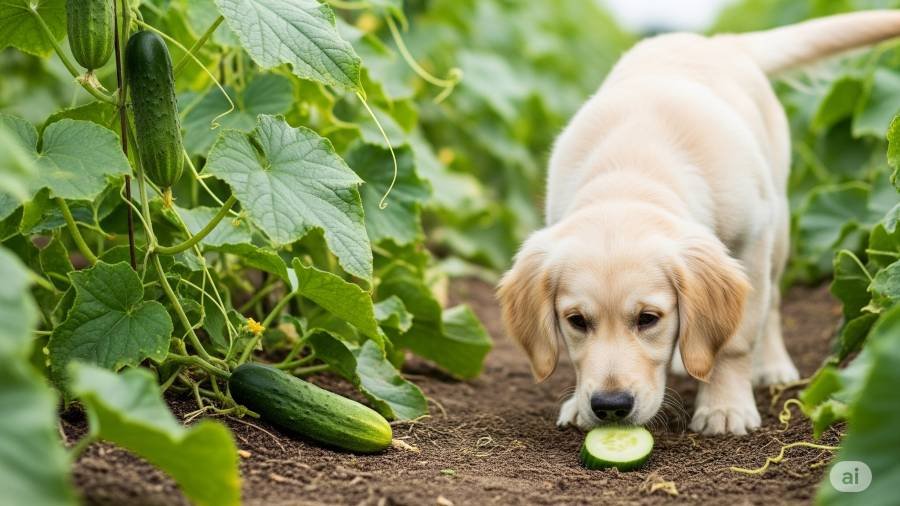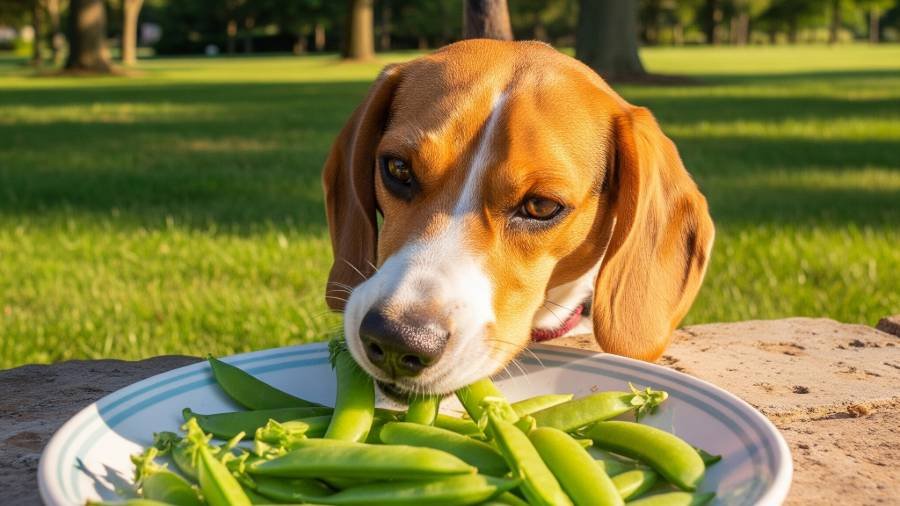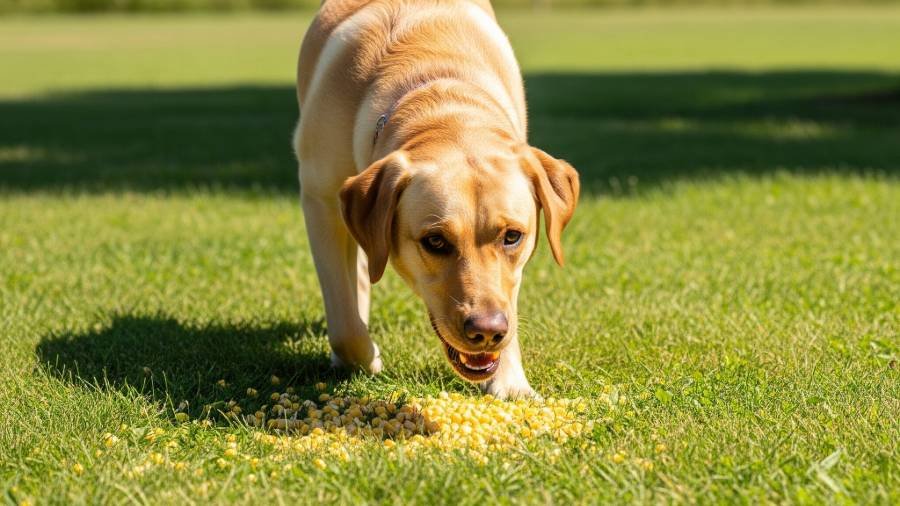Yes, dogs can eat Brussels sprouts in small amounts as a safe and nutritious addition to their diet, offering various health benefits when prepared correctly.
This article provides a unique, detailed guide on feeding sprouts to your dog, exploring their advantages, potential risks, and safe practices.

Potential Benefits of Brussels Sprouts for Dogs
When a dog eats Brussels sprouts in moderation, these cruciferous vegetables provide several advantages that enrich a furry friend’s diet:
- Rich in Fiber: Brussels sprouts are rich in dietary fiber, supporting the digestive system by promoting regularity and preventing constipation.
- Antioxidant Powerhouse: Packed with vitamins C and K, they boost the immune system and aid blood clotting, contributing to overall wellness.
- Low-Calorie Option: With minimal calories, they serve as a healthy treat, ideal for dogs needing to manage weight within their dog food routine.
- Nutritional Benefits: They contain folate and manganese, supporting cell function and bone health, making sprouts good for dogs.
- Anti-Inflammatory Properties: The antioxidants may reduce inflammation, potentially benefiting dogs with joint issues.
These health benefits make Brussels sprouts a valuable choice when you prepare Brussels sprouts for your dog as an occasional snack.
Risks and Dangers of Brussels Sprouts for Dogs
While Brussels sprouts are safe for dogs, certain risks emerge if not handled or fed appropriately:
- Digestive Issues: Large amounts can cause gas, bloating, or diarrhea, as these cruciferous vegetables are difficult for dogs to digest in excess.
- Choking Hazard: Whole or large Brussels sprouts can pose a choking risk, especially for smaller dogs if not cut into manageable pieces.
- Thyroid Concern: Excessive consumption may interfere with thyroid function due to goitrogens, though this is rare with small amounts.
- Allergic Reactions: Though uncommon, some dogs may experience itching or gastrointestinal distress as an allergic response.
- Pesticide Exposure: Non-organic sprouts may carry residues, requiring thorough washing to avoid potential health issues.
- Raw Challenges: Eating raw Brussels sprouts can be harder on a dog’s digestive system, potentially leading to discomfort.
How to Safely Feed Brussels Sprouts to Dogs
To ensure Brussels sprouts are a safe treat, follow these guidelines when you feed your dog sprouts:
- Wash Thoroughly: Rinse Brussels sprouts under water to remove dirt, pesticides, or chemical residues, even if organic, to protect your dog’s health.
- Cook Lightly: Steam or boil to soften them, making them easier to digest, though small dogs can eat raw Brussels sprouts in tiny amounts if tolerated.
- Cut into Small Pieces: Chop into bite-size portions to reduce choking hazard and improve digestibility for your furry friend.
- Avoid Seasonings: Serve plain without salt, butter, or spices, which can be toxic or cause digestive issues.
- Feed in Small Amounts: Offer a small portion (e.g., 1-2 tablespoons for small dogs, up to ¼ cup for large dogs) once or twice a week, keeping treats under 10% of daily caloric intake.
- Monitor Reactions: Introduce gradually and watch for gas, bloating, or allergies over 24-48 hours. Consult a vet if problems arise.
- Consult a Vet: Seek veterinary advice before adding Brussels sprouts, especially for dogs with thyroid or digestive issues.
Signs of Brussels Sprouts-Related Issues
If a dog eats Brussels sprouts improperly or reacts poorly, look for these warning signs:
- Vomiting, diarrhea, or reduced appetite (possible digestive issues from overeating or raw intake)
- Difficulty breathing or choking (from whole sprouts or stalks)
- Excessive gas or bloating (common with cruciferous vegetables)
- Lethargy or unusual behavior (potential thyroid or nutrient imbalance)
- Excessive scratching or swelling (rare allergic reactions)
If these signs appear, stop feeding Brussels sprouts and contact a veterinarian immediately. Severe cases may require urgent care.
Expert Opinions
Veterinary experts, including the American Kennel Club (AKC) and the Pet Poison Helpline, affirm that dogs can eat Brussels sprouts safely in moderation, highlighting their nutritional benefits and low-calorie nature as reasons they can be sprouts good for dogs.
They caution against overfeeding due to digestive challenges and recommend consulting a vet for dogs with specific health needs. For more on safe produce, check can dogs eat bell peppers.
Additional Considerations
- Health Conditions: Dogs with thyroid problems or sensitive stomachs should limit Brussels sprouts. Consult a vet first.
- Puppies: Young dogs need smaller pieces and monitoring to prevent choking.
- Dog Preferences: Some dogs enjoy the earthy taste of Brussels sprouts, but others may not. Adjust based on their response.
- Seasonal Availability: Fresh sprouts are great in winter, while frozen options work year-round for convenience.
- Storage: Refrigerate fresh Brussels sprouts and use within a week; cook and freeze extras to maintain safety.
Safe Treat Alternatives
Instead of relying solely on Brussels sprouts, consider these safe-for-dogs treats, tailored to enhance a dog’s diet:
- Asparagus: A small portion of steamed asparagus offers vitamins.
- Pumpkin Seeds: A teaspoon of unsalted pumpkin seeds provides zinc.
- Cantaloupe: A few bite-size pieces of cantaloupe supply hydration.
- Rice: A tablespoon of plain cooked rice supports digestion.
Introduce new treats gradually, monitor for reactions, and consult a vet to ensure a balanced diet.
Dogs can eat Brussels sprouts as a safe, nutrient-rich treat when fed in small amounts and prepared by cooking lightly and cutting into small pieces, offering health benefits like fiber, vitamins, and support for the digestive system and immune system.
However, risks such as choking hazard from whole sprouts, digestive issues from eating Brussels sprouts stalks or large quantities, or thyroid concerns from overfeeding require careful preparation and moderation.
Puppies or dogs with health issues like digestive sensitivities should limit intake unless approved by a vet, and a balanced dog’s diet should remain the priority.
Always consult a veterinarian before feeding your dog raw Brussels sprouts or cooked varieties, and consider safe alternatives for variety.
For more on canine nutrition, explore can dogs eat broccoli or what vegetables can dogs eat.
For additional questions about what dogs can eat or dietary concerns, feel free to ask!





